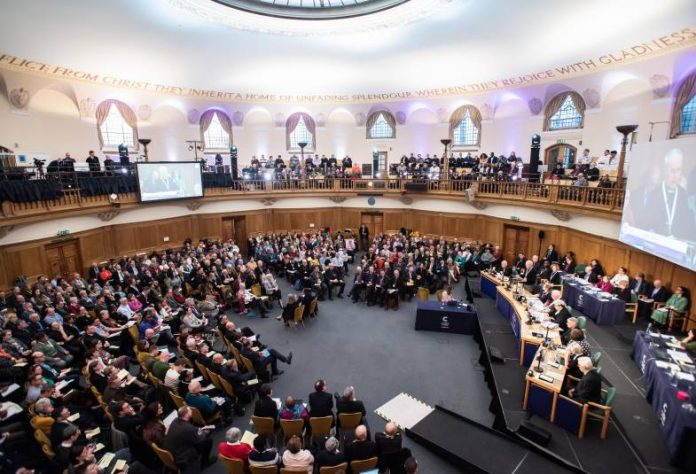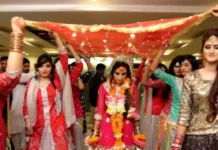| General Synod met from Monday 6th to Thursday 9th February. Amongst other business, the main focus was on the bishops’ proposed response to the Living in Love and Faith process. On Monday, the Bishop of London gave a presentation on the process so far. She explained that after the many years of Shared Conversations and LLF, no consensus had been reached and reiterated the claim that what is proposed represented no change to the church’s doctrine or liturgy. A number of challenges were made to this assertion, through a variety of means. Alternative legal advice was circulated to Synod members, suggesting that this was not the case; attempts were made to have the business reallocated in the proper way, which would have required a 2/3 majority in all the houses; and Gravamina and Reformanda were submitted to the house of laity, and to the convocations of clergy in York and Canterbury. None were successful but it was made very clear that the bishops’ attempts at subverting the process would be resisted. On Tuesday, there was a question session dedicated to LLF related questions, and an extended session of group work. The questions were almost universally met with non-answers, telling us that all the issues would be dealt with in the not-yet published pastoral guidance. This guidance is due to be published well in advance of the July synod, and is going to require a substantial amount of work. A question about how many people would be allocated to producing the guidance was left unanswered.The group work was, in general, carefully structured and led, so that all views could be heard. It also included an opportunity for everyone to contribute written feedback on the Prayers of Love and Faith, and input into what the pastoral guidance should contain.We were also presented with this video, which appears to have presumed the result of the motion that Synod had not yet discussed. As far as the bishops were concerned, it was a fait accompli. On Wednesday, the debate on the main motion was scheduled for five hours. This ran on for over three more hours on Thursday morning. The chamber was full throughout and the Chair of the debate set clear and fair guidelines for how we would tackle the motion and the 27 tabled amendments.The House of Bishops voted against all but one amendment. In most cases, the amendments also failed in the clergy or laity or both, but not every time. Only one amendment was welcomed by the Bishop of London and this was the only amendment which succeeded in all three houses and thus was accepted. This amendment, proposed by Church Society member Andrew Cornes, added a further clause to the motion that:[This Synod] endorse the decision of the College and House of Bishops not to propose any change to the doctrine of marriage, and their intention that the final version of the Prayers of Love and Faith should not be contrary to or indicative of a departure from the doctrine of the Church of England.This amendment makes explicit what is said in the proposals, that the doctrine of marriage should not change and that nothing proposed should be contrary to, or moving away from that doctrine. This amendment holds the bishops to what they have promised and is a warning that Synod will be watching for this. On Thursday, Synod finally voted on the amended motion. It was easily passed in the House of Bishops, it was closer in the House of Clergy, and in the House of Laity, there were just 11 votes in it. If six lay people had voted differently, the motion would have failed.The list of how each member of Synod voted will be published soon, but the numbers were as follows:House of Bishops: 36 for; 4 against; 2 abstentionsHouse of Clergy 111 for; 85 against; 3 abstentionsHouse of Laity 103 for; 92 against; 5 abstentionsChurch of England responses: Church Society Podcast: What happened at General Synod CEEC response to SynodI an Paul: What exactly happened at General Synod Martin Davie: On not blaming God Ros Clarke: Paying attention to the power of the bishops Jason Ward: In defence of the Archbishop of Canterbury Martin Davie: On not snatching defeat out of the jaws of victory Global responses:The Global South Fellowship of Anglicans issued this statement warning of impaired communion.This letter from GAFCON chair, Archbishop Foley Beach, accuses the Archbishop of Canterbury of shredding the fragile fabric of the Anglican Communion.The Anglican Church of Nigeria responded by calling the English bishops to stop redefining sin and warned that the rest of the global church will not be held to ransom by the Church of England.The Church of Uganda described the Church of England’s decision as ‘suicidal’ and insisted that theAnglican Communion will remain orthodox, whether or not the Church of England remains part of it.Archbishop Mouneer Anis calls for the church to speak Contra Mundum (Against the world).Statements from Anglican churches in Rwanda, Kenya, South Africa and elsewhere have also strongly condemned the proposed changes.The Archbishop of Canterbury’s speech made at the Anglican Consultative Council in Ghana this week indicates that he might be willing to give up his role in the Anglican Communion in order that same-sex marriage can go ahead in the Church of England. |
| Thanks and praise |
| Although the motion was passed without substantive amendments, there was so much to give thanks for about last week’s Synod meetings, which may not have been as clear to those following online as to those of us who were there:The unity amongst evangelicals and others who hold to a traditional view of marriage was palpable. We worked as a 1 Corinthians 12 body, some taking responsibility for legal challenges, others speaking out in the chamber, others contributing in group work, many giving encouragement and praying throughout the debates. It was truly a privilege to be part of this diverse group of men and women, clergy and lay people, charismatic and conservative, complementarian and egalitarian, white British and global minority heritage, same-sex attracted and opposite-sex attracted.The speeches given by evangelicals were gospel-honouring, clear, powerful and winsome. Some spoke vulnerably about their own sexuality and sex lives. Others talked about their experiences in pastoral ministry. Some showed how this issue is truly a gospel issue. Others exposed weaknesses in the bishops’ proposals. The gospel was proclaimed and God’s word was honoured throughout the lengthy debate.There were evangelical bishops who spoke bravely against the motion and others who stood to speak but were not called. We don’t yet know the identity of the four bishops who voted against the motion, but in due course those names will be published.The Archbishop of Alexandria, Dr Samy Fawzy, was present as an observer and was able to speak powerfully about the impact these proposals would have on the Anglican Communion. His voice was echoed by several other evangelical members of Synod of global minority heritage.The votes were close. In some cases they were very close: one vote had a 98-99 split in the House of Laity. The final motion rested on just 6 lay votes. It is, therefore, absolutely clear that no motion on this issue which requires a 2/3 majority will pass in this synod. Any motion calling for same-sex marriage would necessarily require this. We can be confident then that this will not be on the table for at least the next 3 and a half years.The idea of a settlement or of differentiation was mentioned in the debate, by several people, including the Archbishop of York. This is new territory, but it is encouraging that it is now a serious option, giving the possibility of serious negotiation in the future.It was noticeable after the debate had ended that there was no sense of a great victory amongst the revisionists. Amendments calling for a debate on same-sex marriage had been strongly resisted. The public perception may be that the Church of England has changed, but as of yet, nothing has changed. The Prayers of Love and Faith are not yet commended, and the bishops will have to demonstrate that whatever comes back to Synod is not contrary to the doctrine of the Church of England.Be encouraged by this small selection of a large number of excellent speeches:Vaughan Roberts (who was second to speak in the debate, following Justin Welby) Busola Sodeinde Anna de Castro Ben John Paul Chamberlain Andrew Cornes |
| Ongoing prayers |
| Pray for the meeting of the Anglican Consultative Council in Ghana this week. Pray that the responses of Anglicans from around the world will give the Archbishop of Canterbury reason to reconsider the actions of the Church of England. Pray that the bishops will reconsider the legal advice which suggested they could separate Holy Matrimony from civil marriage in the light of the alternative legal advice which has been provided.Pray for the bishops as they work on revising the Prayers for Love and Faith to hold firmly to the doctrine of the Church of England. Pray for evangelical bishops to be clear and courageous as they speak up in those discussions. Pray for those who are drawing up the pastoral guidance to be clear on matters such as sexual sin, the nature of marriage and blessing, and the pressures that the proposal to leave it to each incumbent’s conscience will bring. Pray that negotiations regarding a settlement and separation can begin and that the seriousness of the matter will be recognised by all. Pray that faithful Anglicans in other parts of the global Anglican Communion will hold firm to biblical orthodoxy and that their voices will be heard clearly in this debate. Pray that unity with them will be valued, not only unity within the Church of England. Pray for all those faithful ministers considering their next steps following the Synod motion. Pray for wisdom and courage, for unity as they stand together. Pray especially for those in revitalisation contexts where they may not have the support of PCCs or Church wardens. |










